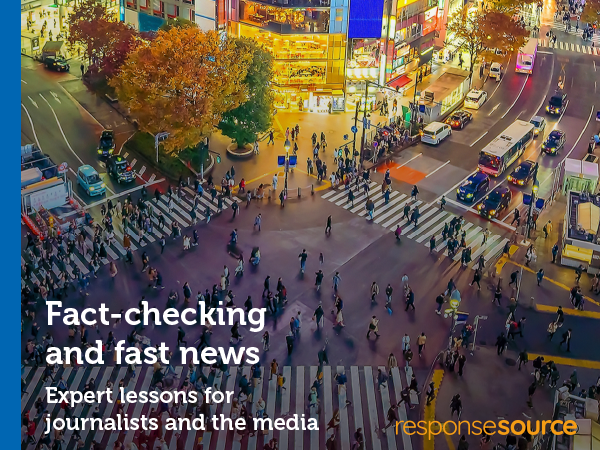Fact-checking and fast news – white paper from ResponseSource

The ResponseSource journalist community has told us that the success of their industry is intrinsically linked with rebuilding trust. There’s a constant struggle to provide content and formats that audiences will pay for but producing quality stories, training the next generation of journalists to research and write them, and providing the resources that editorial teams need, all require investment up front. It’s a vicious circle – but the experts who contributed to the latest ResponseSource white paper, Fact-checking and fast news, remind us that there’s plenty of cause for optimism. Traditional journalism skills combined with the latest techniques and technologies are well-placed to champion accuracy, fight misinformation and even help educate audiences to do the same.
We heard from Patrick Worrall, senior producer at Channel 4 News FactCheck, Professor Charlie Beckett, director of the Polis journalism think-tank at the London School of Economics, fact-checkers Alan Meban from FactCheckNI and Alastair Brian of Ferret Fact Service, environmental journalist and author Leo Hickman from Carbon Brief, and journalism lecturer John Murphy from the University of Hertfordshire.
Their contributions discuss whether it can be better not to give fake news “the oxygen of publicity”; how publishing fact-checks can highlight an organisation’s editorial impartiality, and can continue to work for you long after you’ve done the hard work of investigating; and how media outlets can work with or learn from professional fact-checkers.
We’ve also provided a section of free resources that can help new journalists get to grips with verification skills and highlights new resources for more experienced writers. You can download a free copy of the white paper here, and listen to Beckett, Meban and Brian discuss fact-checking best practice on our recent webinar Facts, fakes and fast news.






